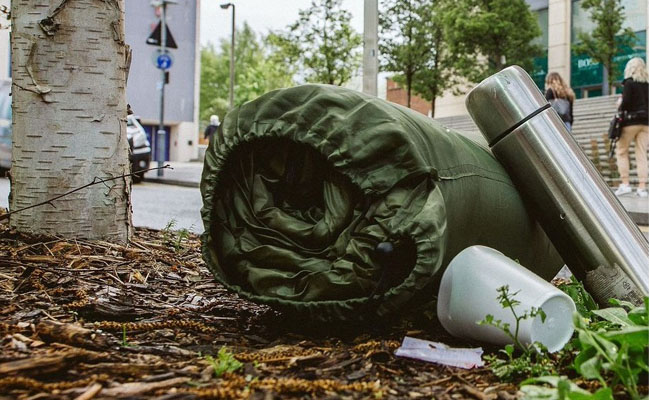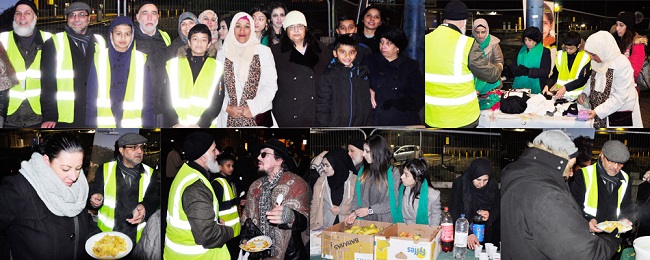Generous West Midlands residents and businesses donate more than £150,000 to help homeless

Birmingham: Change into Action, the alternative giving scheme, has raised more than £150,000 in donations to help support homeless people across the West Midlands.
The scheme, which supports local specialist charities and street teams working to change the circumstances of rough sleepers and those at risk of rough sleeping, uses donations to pay for items such as clothing, travel to get to medical and other essential appointments, emergency accommodation, and rent deposits.
Despite the Covid-19 pandemic, donations from generous residents and businesses have continued to come in, with the scheme now passing the £150,000 milestone. In Coventry alone, more than £12,000 has been donated during the lockdown period.
Andy Street, the Mayor of the West Midlands and founder of the WMCA’s Homelessness Taskforce, said: “I want to say a huge thank you to everyone who has supported our most vulnerable members of society across the region by donating to Change into Action.
“The Coronavirus pandemic has been extremely difficult for businesses and residents, but despite this people are still giving generously to Change into Action, which is incredibly heart-warming.
“Rough sleepers are at high risk from Covid-19, and it is therefore more important than ever we do everything we can to support them. Change into Action is a safe and easy way for residents and businesses to do that, with people having the confidence that the money they donate will go directly to helping people who are sleeping rough.
“For those wanting to donate to the scheme, the easiest and most direct way is through the Change into Action website at www.changeintoaction.org.uk “
Change into Action was initially launched as a pilot in Birmingham in 2017, as a partnership between the Mayor of the West Midlands, the West Midlands Combined Authority (WMCA), and Birmingham City Council. The scheme now covers four West Midlands areas Birmingham, Solihull, Coventry and Walsall, and Wolverhampton City council runs a similar scheme called Small Change for Big Change.
Cllr Sharon Thompson, Cabinet Member for Homes and Neighbourhoods at Birmingham City Council and Chair of the WMCA Homelessness Taskforce Members Advisory Group, added: “This is wonderful news and I’d like to thank everyone who has contributed. Homeless people are particularly vulnerable to Covid-19, and in Birmingham alone, 267 people have received help through the scheme which is fantastic.
“Over the last decade, we’ve seen rough sleeping increase exponentially. While we’ve been working tirelessly to do all we can to support and prevent homelessness, the resources of local authorities across the country, and particularly in the West Midlands, have been limited. That’s why Change into Action is vital. It provides rough sleepers with the type of funding that can be seemingly small but in reality, is life changing.
“As a homeless teen myself, I know first-hand how tough it can be to change your life. Donations, like these, will make a huge difference and will put us one step closer to designing out homelessness in the West Midlands.”
The news comes as the West Midlands Combined Authority’s (WMCA) Homelessness Taskforce urges the Government to act now to prevent a post-COVID-19 surge in homelessness across the region.
The Taskforce has called on Government to introduce a range of new measures to support rough sleepers and people at risk of becoming homeless as the pandemic continues. More than 800 existing or potential rough sleepers have been housed by local authorities in the region throughout the crisis and now the Taskforce wants to use the lessons learned during the pandemic to ensure that those who have come in are able to stay in.
A West Midlands submission to the Government’s homelessness Tsar, Dame Louise Casey, highlights growing concerns that the number of people presenting as homeless could rise due to the virus temporarily ‘bottling up’ demand. In particular, the Taskforce has highlighted rent arrears and wider debt accrued during the lockdown due to the reduction in people’s incomes as two key reasons why people will find themselves facing homelessness as the pandemic continues. The group has also raised the ‘significant risk’ of relationships breaking down during the lockdown phase as another factor leading to homelessness.





